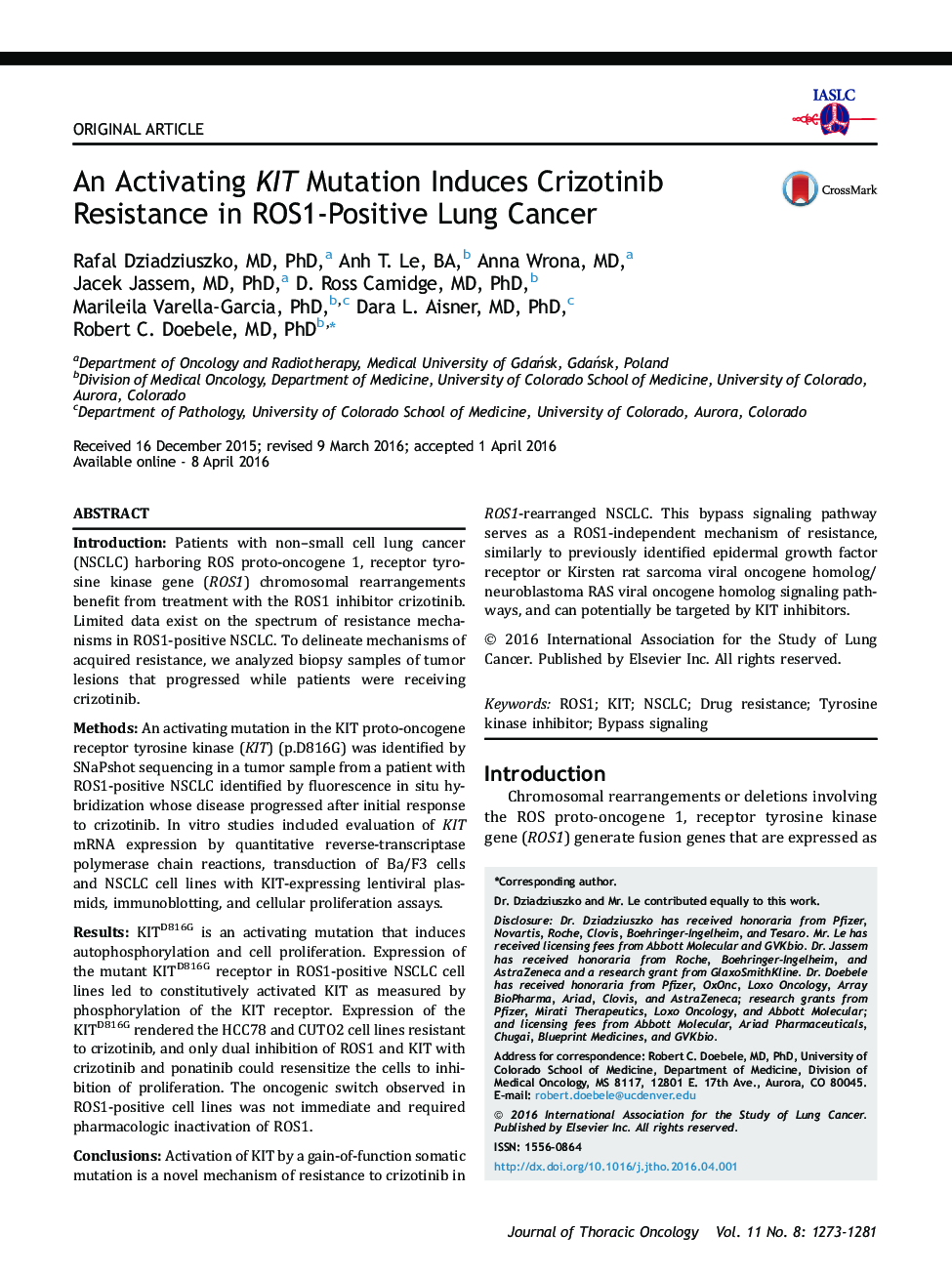| کد مقاله | کد نشریه | سال انتشار | مقاله انگلیسی | نسخه تمام متن |
|---|---|---|---|---|
| 6192639 | 1258672 | 2016 | 9 صفحه PDF | دانلود رایگان |

IntroductionPatients with non-small cell lung cancer (NSCLC) harboring ROS proto-oncogene 1, receptor tyrosine kinase gene (ROS1) chromosomal rearrangements benefit from treatment with the ROS1 inhibitor crizotinib. Limited data exist on the spectrum of resistance mechanisms in ROS1-positive NSCLC. To delineate mechanisms of acquired resistance, we analyzed biopsy samples of tumor lesions that progressed while patients were receiving crizotinib.MethodsAn activating mutation in the KIT proto-oncogene receptor tyrosine kinase (KIT) (p.D816G) was identified by SNaPshot sequencing in a tumor sample from a patient with ROS1-positive NSCLC identified by fluorescence in situ hybridization whose disease progressed after initial response to crizotinib. In vitro studies included evaluation of KIT mRNA expression by quantitative reverse-transcriptase polymerase chain reactions, transduction of Ba/F3 cells and NSCLC cell lines with KIT-expressing lentiviral plasmids, immunoblotting, and cellular proliferation assays.ResultsKITD816G is an activating mutation that induces autophosphorylation and cell proliferation. Expression of the mutant KITD816G receptor in ROS1-positive NSCLC cell lines led to constitutively activated KIT as measured by phosphorylation of the KIT receptor. Expression of the KITD816G rendered the HCC78 and CUTO2 cell lines resistant to crizotinib, and only dual inhibition of ROS1 and KIT with crizotinib and ponatinib could resensitize the cells to inhibition of proliferation. The oncogenic switch observed in ROS1-positive cell lines was not immediate and required pharmacologic inactivation of ROS1.ConclusionsActivation of KIT by a gain-of-function somatic mutation is a novel mechanism of resistance to crizotinib in ROS1-rearranged NSCLC. This bypass signaling pathway serves as a ROS1-independent mechanism of resistance, similarly to previously identified epidermal growth factor receptor or Kirsten rat sarcoma viral oncogene homolog/neuroblastoma RAS viral oncogene homolog signaling pathways, and can potentially be targeted by KIT inhibitors.
Journal: Journal of Thoracic Oncology - Volume 11, Issue 8, August 2016, Pages 1273-1281